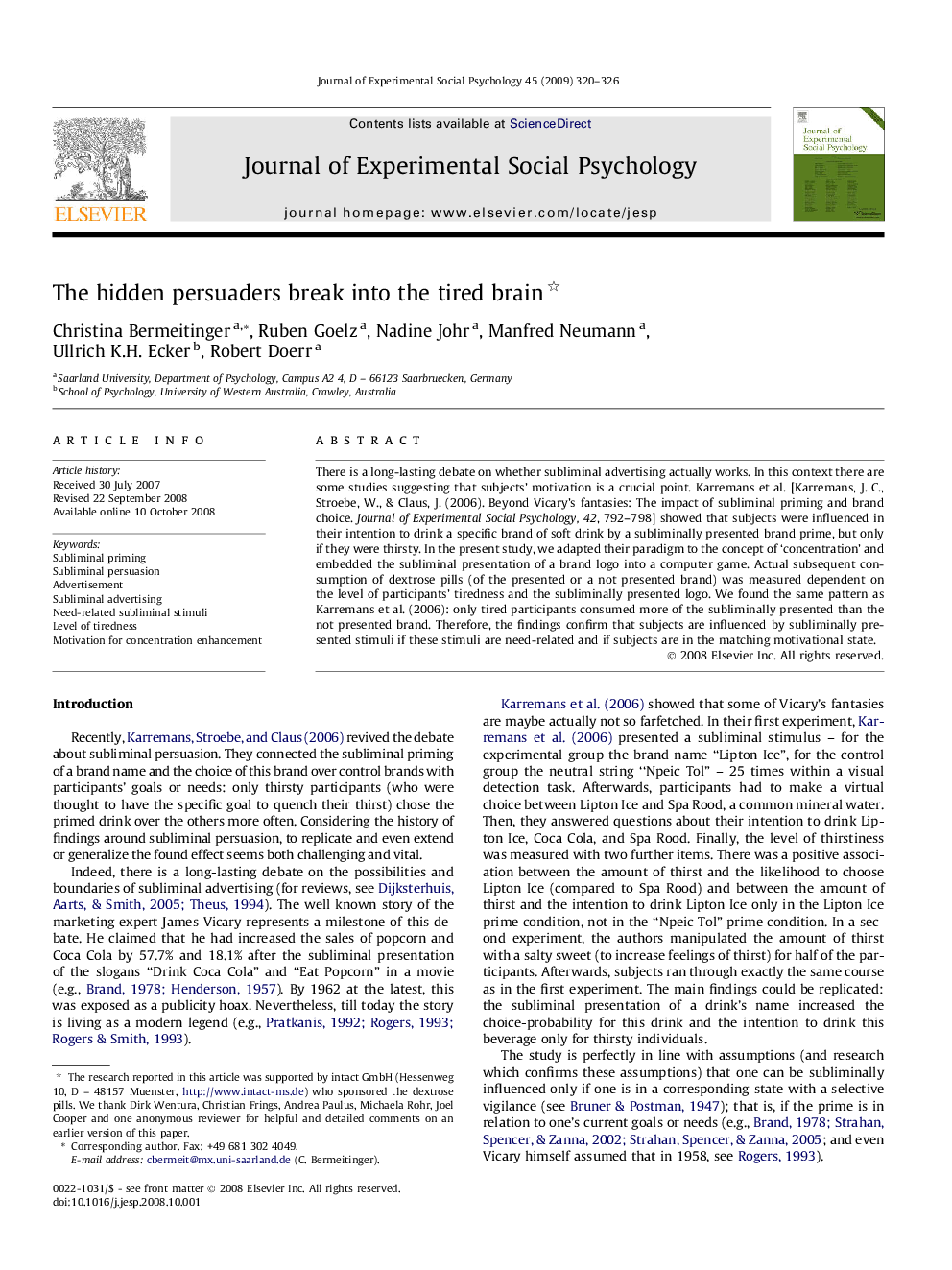| Article ID | Journal | Published Year | Pages | File Type |
|---|---|---|---|---|
| 948789 | Journal of Experimental Social Psychology | 2009 | 7 Pages |
There is a long-lasting debate on whether subliminal advertising actually works. In this context there are some studies suggesting that subjects’ motivation is a crucial point. Karremans et al. [Karremans, J. C., Stroebe, W., & Claus, J. (2006). Beyond Vicary’s fantasies: The impact of subliminal priming and brand choice. Journal of Experimental Social Psychology, 42, 792–798] showed that subjects were influenced in their intention to drink a specific brand of soft drink by a subliminally presented brand prime, but only if they were thirsty. In the present study, we adapted their paradigm to the concept of ‘concentration’ and embedded the subliminal presentation of a brand logo into a computer game. Actual subsequent consumption of dextrose pills (of the presented or a not presented brand) was measured dependent on the level of participants’ tiredness and the subliminally presented logo. We found the same pattern as Karremans et al. (2006): only tired participants consumed more of the subliminally presented than the not presented brand. Therefore, the findings confirm that subjects are influenced by subliminally presented stimuli if these stimuli are need-related and if subjects are in the matching motivational state.
